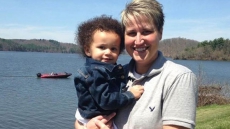Societies living in harsh environments are more likely to believe in gods, says a study, suggesting that societies with less access to food and water are more likely to believe in them.
"When life is tough or when it is uncertain, people believe in big gods. Pro-social behaviour may help people do well in harsh or unpredictable environments," said Russell Gray, professor at the University of Auckland and founding director of the Max Planck Institute for History and the Sciences in Germany.
Just as physical adaptations help populations prosper in inhospitable habitats, belief in gods might be similarly advantageous for human cultures in poorer environments, found the study, done by the National Evolutionary Synthesis Centre (NESCent) in North Carolina in the US.
Gray and co-authors found a strong correlation between belief in gods who enforce a moral code and other societal characteristics.
They used historical, social and ecological data for 583 societies to illustrate the multifaceted relationship between belief in gods and external variables.
Political complexity - namely a social hierarchy beyond the local community - and the practice of animal husbandry were both strongly associated with a belief in gods.
The emergence of religion has long been explained as a result of either culture or environmental factors but not both.
"The new findings imply that complex practices and characteristics thought to be exclusive to humans arise from a medley of ecological, historical and cultural variables," said Carlos Botero, primary author and researcher from the North Carolina State University.
The study is just the tip of the iceberg in examining human behaviour from a cross-disciplinary standpoint.
The team plans to further explore the processes that have influenced the evolution of other human behaviour including taboos and the modification of natural habitats.
The paper is set to be published in the journal Proceedings of the National Academies of Science.





